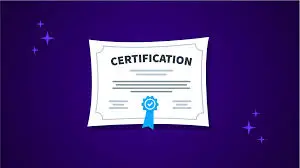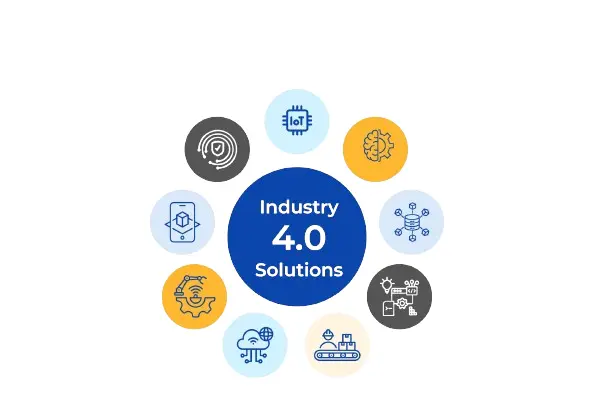Course Overview
This course provides a holistic framework for designing and managing effective solid waste systems that are economically viable, socially acceptable, and environmentally sound. Participants will learn about waste generation, collection, transportation, treatment, and disposal, with an emphasis on integrating various management options to achieve sustainability goals.
Course Duration
10 Days
Target Audience
-
Municipal solid waste managers and planners
-
City administrators and urban planners
-
Environmental engineers and consultants
-
Recycling and waste processing facility operators
-
Policy makers in local and national government
Personal Impact
-
Ability to analyze waste streams and assess current waste management systems.
-
Knowledge to evaluate and select appropriate waste treatment and disposal technologies.
-
Skills to develop financial models and engage stakeholders for ISWM plans.
-
Understanding of how to integrate reduction, recycling, and recovery into waste management.
Organizational Impact
-
Development of cost-effective and sustainable waste management systems.
-
Improved recycling rates and diversion from landfill.
-
Enhanced public satisfaction with waste services.
-
Reduced environmental impact from waste disposal.
Course Level:
Course Objectives
-
Understand the components and challenges of municipal solid waste management.
-
Evaluate waste collection, transportation, and treatment options.
-
Develop strategies for waste minimization, recycling, and resource recovery.
-
Prepare an integrated solid waste management plan for a community.
Course Outline
Module 1: Introduction to Integrated Solid Waste Management
-
Waste characteristics: generation rates, composition, and seasonal variations.
-
The waste management hierarchy: reduction, reuse, recycling, recovery, disposal.
-
Legal and regulatory framework for solid waste management.
-
Exercise: Conducting a waste characterization study for a urban area.
Module 2: Waste Collection and Transportation Systems
-
Collection system design: door-to-door, community bins, and bring systems.
-
Vehicle routing and scheduling optimization.
-
Transfer station design and operation.
-
Workshop: Designing an efficient collection route for a neighborhood.
Module 3: Waste Processing and Material Recovery Facilities (MRFs)
-
Design and operation of materials recovery facilities (MRFs).
-
Mechanical sorting technologies: screens, magnets, eddy current separators.
-
Composting of organic waste: windrow, aerated static pile, and in-vessel systems.
-
Case Study: Tour of a modern MRF (virtual or actual).
Module 4: Thermal Treatment and Waste-to-Energy
-
Mass-burn incineration: process, energy recovery, and air pollution control.
-
Advanced thermal technologies: pyrolysis, gasification, and refuse-derived fuel (RDF).
-
Ash management and residue treatment.
-
Exercise: Comparing the cost and environmental footprint of incineration vs. landfill.
Module 5: Landfilling and Landfill Gas Management
-
Sanitary landfill design: liners, leachate collection, and final cover systems.
-
Leachate treatment: biological, chemical, and membrane processes.
-
Landfill gas extraction, flaring, and energy recovery.
-
Workshop: Designing a basic landfill gas collection system.
Module 6: Special Waste Streams Management
-
Management of construction and demolition (C&D) waste.
-
Handling of healthcare waste and other special wastes.
-
Case Study: Developing a C&D waste management plan for a large project.
Module 7: Financial Aspects of Waste Management
-
Costing of waste management services: collection, treatment, and disposal.
-
Funding models: user fees, taxes, public-private partnerships (PPPs).
-
Economic instruments: pay-as-you-throw (PAYT), extended producer responsibility (EPR).
-
Exercise: Developing a cost-recovery model for municipal waste services.
Module 8: Social and Stakeholder Aspects of Waste Management
-
Public awareness and education campaigns for waste reduction and recycling.
-
Engaging informal waste sector and community-based organizations.
-
Addressing social equity in waste management service delivery.
Module 9: ISWM Planning and Policy Development
-
Steps in developing an ISWM plan: assessment, goal setting, option evaluation, implementation.
-
Setting targets for waste diversion and recycling.
-
Monitoring and evaluation of ISWM plan performance.
Module 10: Capstone Project: ISWM Plan Development
-
Final Project: Preparing a comprehensive ISWM plan for a city, including current state analysis, future projections, technology selection, financial plan, and implementation strategy.
Related Courses
Course Administration Details:
METHODOLOGY
The instructor-led trainings are delivered using a blended learning approach and comprise presentations, guided sessions of practical exercise, web-based tutorials, and group work. Our facilitators are seasoned industry experts with years of experience, working as professionals and trainers in these fields. All facilitation and course materials will be offered in English. The participants should be reasonably proficient in English.
ACCREDITATION
Upon successful completion of this training, participants will be issued an Indepth Research Institute (IRES) certificate certified by the National Industrial Training Authority (NITA).
TRAINING VENUE
The training will be held at IRES Training Centre. The course fee covers the course tuition, training materials, two break refreshments, and lunch. All participants will additionally cater to their travel expenses, visa application, insurance, and other personal expenses.
ACCOMMODATION AND AIRPORT PICKUP
Accommodation and airport pickup are arranged upon request. For reservations contact the Training Officer.
- Email: [email protected]
- Phone: +254715 077 817
TAILOR-MADE
This training can also be customized to suit the needs of your institution upon request. You can have it delivered in our IRES Training Centre or at a convenient location. For further inquiries, please contact us on:
- Email: [email protected]
- Phone: +254715 077 817
PAYMENT
Payment should be transferred to the IRES account through a bank on or before the start of the course. Send proof of payment to [email protected]
Click here to register for this course.
Register NowCustomized Schedule is available for all courses irrespective of dates on the Calendar. Please get in touch with us for details.
Do you need more information on our courses? Talk to us.









